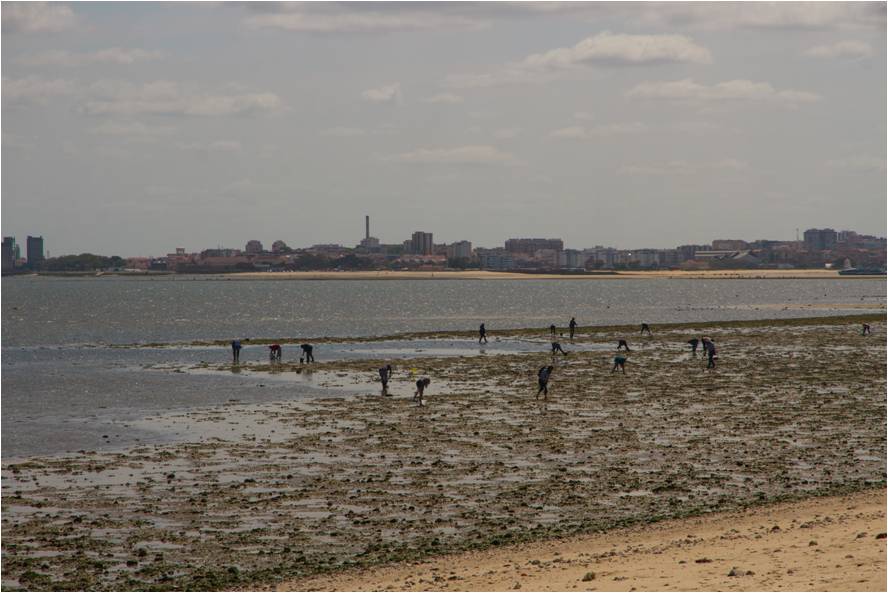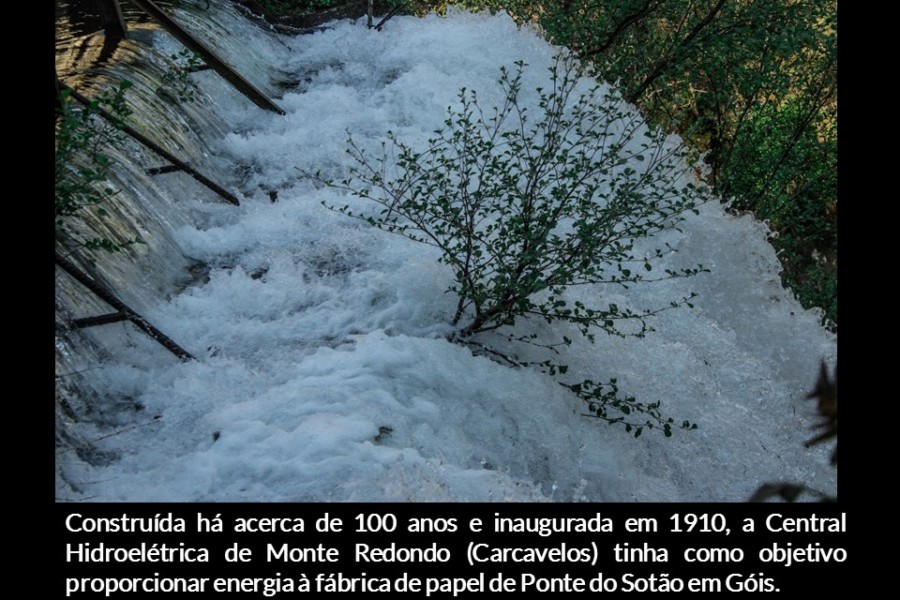Females with male characteristics reveal pollution by chemical TBT, in the area of Nazaré, Portugal
Despite prohibition since 1993, the use of anti vegetative paints on boats continues to pollute the marine ecosystems. A study made between November 2015 and May 2016, in Nazaré, shows that there are females of molluscs with sexual male characteristics. They become sterile, putting in danger the ecological balance.

Illegal gathering of mussels in river Tagus
Illegal gathering of mussels in Ponta dos Corvos, Seixal, estuary of Tagus, Portugal. A rentable activity but dangerous for the public health.
During May, we could see dozens of people in the river Tagus gathering bivalves to be sold to businessmen. An extra family income but a serious problem of public health, due to the presence of dangerous levels of toxins or microbiological contamination.
According to the Institute of the Sea and the Atmosphere, the gathering of bivalves is forbidden in the estuary of Tagus, since 3rd May. By the end of the month, at the low tide, dozens of people continue entering the river, as we can see in the photo taken in Ponta dos Corvos, Seixal. This prohibition is due to the “the presence of levels of toxins or microbiological contamination over regular levels”.
There are many businessmen who buy these bivalves at a low price and introduce them in the market, which may cause problems of public health.

Beatas no chão… NÃO!
Estima-se que por minuto, o mercado mundial produza perto de 11 milhões de cigarros para dar resposta ao consumo de cerca de 4,5 triliões de cigarros em todo o mundo.
Em Portugal, são vendidos mil milhões de cigarros por mês e, assumindo-se que 30% das beatas destes cigarros vão parar ao chão, significa que teremos, a cada minuto, mais 7000 beatas nas ruas portuguesas.
Atualmente, sabe-se que as beatas de cigarro são o resíduo que podemos encontrar em maior quantidade nas nossas praias, sendo que as micropartículas, assim como os metais pesados existentes nas beatas, tendem a entrar num ciclo que afeta todo o ecossistema: terra, mar, ar e naturalmente, os animais e os seres humanos.
Por todos estes motivos, importa sensibilizar a população em geral, e os fumadores em particular, fazendo-se o diagnóstico daquela que é a realidade nas praias portuguesas, identificando as causas e apontando soluções que tendem a ser estruturais mas que implicam, invariavelmente, a educação para a cidadania.



You must be logged in to post a comment.